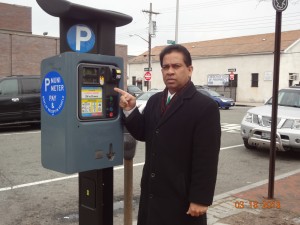The City has installed new muni-meters, presumably to make parking more convenient for New Yorkers. However, these new meters, which have now replaced 99% of the old ones, leave much to be desired. Many do not yield the full time paid for, and patrons often get shortchanged. Some do not get serviced regularly for paper, and cannot cough up the token receipts. Some do not accept coins, while some refuse credit cards, and can cause severe annoyance and inconvenience. A few patrons have even lost their credit cards in these meters. Vital personal and financial information can be compromised as a result.




